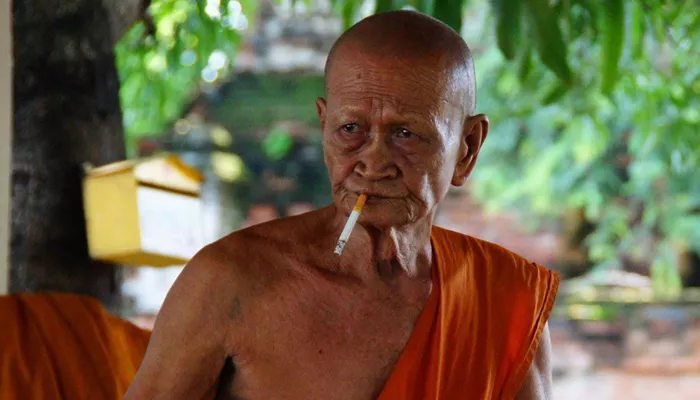Buddhist monks live a special life dedicated to spiritual practice. They follow the teachings of the Buddha and follow strict rules. Their lifestyle is simple and focused on meditation, study, and helping others. Many people wonder if Buddhist monks can quit their monastic life and return to normal living. This article explains what it means to be a monk, if quitting is possible, and how it happens.
What Does It Mean to Be a Buddhist Monk?
A Buddhist monk is someone who has chosen to leave worldly life and follow the path of the Buddha. Monks live in temples or monasteries, wear special robes, and follow a set of rules called the Vinaya. Their daily life includes meditation, chanting, study, and teaching the Dharma (Buddha’s teachings).
Buddhist monks live simply and avoid many things normal people enjoy, such as luxury, personal possessions, and sometimes even family life. This strict lifestyle helps them focus on their spiritual growth.
The Buddhist Monk Lifestyle
The buddhist monk lifestyle is very disciplined. Monks wake up early, meditate for hours, eat simple food, and spend time learning scriptures. They rely on alms given by laypeople for food. This lifestyle is very different from ordinary life.
Monks wear a simple outfit that symbolizes renunciation of worldly attachments. This outfit is usually in shades of orange, maroon, or yellow depending on the tradition.
Is It Possible for Buddhist Monks to Quit?
The short answer is yes, Buddhist monks can quit monastic life. But it is not a simple decision. Becoming a monk is seen as a serious and lifelong commitment. However, monks are still human and can decide to leave the monastery and return to normal life for various reasons.
Reasons Why Monks May Quit
- Personal challenges: The strict lifestyle can be very hard. Some monks find it difficult to adjust or continue.
- Health issues: Physical or mental health problems can make monastic life too difficult to continue.
- Family matters: Some monks leave to care for family members or due to family emergencies.
- Spiritual doubts: Some may feel their spiritual path lies elsewhere or question their commitment.
- Change of mind: Over time, some monks may simply decide monastic life is not for them.
How Do Monks Leave Monastic Life?
When a monk decides to quit, there are formal and informal ways to do it. In some Buddhist traditions, a monk can ask their abbot or senior monks to be released from their vows. This is called “disrobing.”
Disrobing means the monk removes the robes and stops following the strict monastic rules. After disrobing, the person returns to lay life. They may marry, work, or live like any other person.
Though some monks leave quietly without formal ceremonies, many Buddhist communities support the process to ensure it is respectful and clear.
Is Leaving Monastic Life Seen as a Failure?
In Buddhism, leaving monastic life is not considered a failure. Buddhism teaches understanding and compassion. People are encouraged to follow their true path and happiness.
Sometimes, leaving monastic life is part of a person’s spiritual journey. They may return to lay life but still practice Buddhism deeply. Others may come back to monastic life later.
The choice to leave or stay is personal. The Buddhist view encourages respect for all sincere choices.
Can a Monk Return After Quitting?
Yes, a monk who leaves can return to monastic life if they wish. Some monks disrobe temporarily and later take their vows again. This depends on the rules of the specific tradition.
Many monasteries welcome back monks who want to return. The path of Buddhism is flexible and allows for changes as long as there is sincere intention.
What Happens to the Monk’s Role in the Community?
When a monk quits, they stop performing monk duties such as teaching, leading ceremonies, or meditation guidance. They return to layperson status.
Laypeople usually respect the decision. Sometimes, ex-monks continue to contribute to the community in other ways, such as teaching Dharma or helping in social work.
Can Buddhist Monks Quit?
In summary, buddhist monks can quit monastic life, but it is a serious decision. They live a disciplined lifestyle with many rules, and leaving is called disrobing. Reasons for quitting vary, including personal, health, and spiritual reasons.
Leaving monastic life is not seen as a failure but a personal choice. Monks can return to lay life and sometimes return to monastic life later. Buddhism respects all sincere paths toward growth and understanding.
Conclusion
Although becoming a Buddhist monk is a solemn commitment, Buddhism does not require immutability. Monks can choose to return to secular life for personal, health, family or spiritual reasons. This process is called “taking off the robes” or “returning to secular life”. Buddhism emphasizes compassion and wisdom, and respects everyone’s true choices. Even if you leave the Sangha, you can continue to practice the Dharma and even become a monk again in the future. For Buddhism, the key is not identity, but inner enlightenment and practice.

